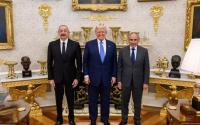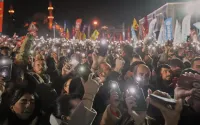 Nearly three million people are eligible to vote in the Irish Republic's poll |
12 June 2008
All other 26 member states have left the issue to their parliaments, but Ireland is obliged to hold a popular vote on changes to its constitution.
All of the main Irish parties back the treaty but the No campaign has been putting up a strong challenge.
With many voters undecided, opinion polls suggest the result will be close.
The document, known as the Lisbon Treaty, replaces a more ambitious draft constitution that was rejected by French and Dutch voters in 2005.
It provides for a streamlining of the European Commission, the removal of the national veto in more policy areas, a new president of the European Council and a strengthened foreign affairs post.
The BBC's Jonny Dymond in Dublin says that a 'No' vote could plunge the EU into crisis, and that all eyes will be on the turnout.
A figure below 40% would almost certainly sink the treaty, our correspondent says.
In 2001, Irish voters almost wrecked EU plans to expand eastwards when they rejected the Nice treaty. It was only passed in a much-criticised second vote.
Ireland's EU Minister, Dick Roche, predicted on the eve of polling that the Yes campaign would win but the result would be "very, very close".
Better deal?
Jose Manuel Barroso, President of the European Commission, urged all EU states to back the treaty, which is due to come into force on 1 January 2009.
Irish voters give their views on the Lisbon Treaty |
Speaking after Finland and Estonia became the latest EU members to ratify the treaty in their parliaments, he said the reforms would strengthen the EU to meet global challenges.
The No campaign is a broad coalition ranging from lobby group Libertas to Sinn Fein, the only party in parliament to oppose the treaty.
Sinn Fein leader Gerry Adams said a successful No vote would give Ireland's "government a strong mandate to negotiate a better deal for Ireland".
Ireland's PM Brian Cowen has accused opponents of the treaty of "sheer inaccuracy and absurdity" and said Ireland could not get a better deal than the one on offer.







